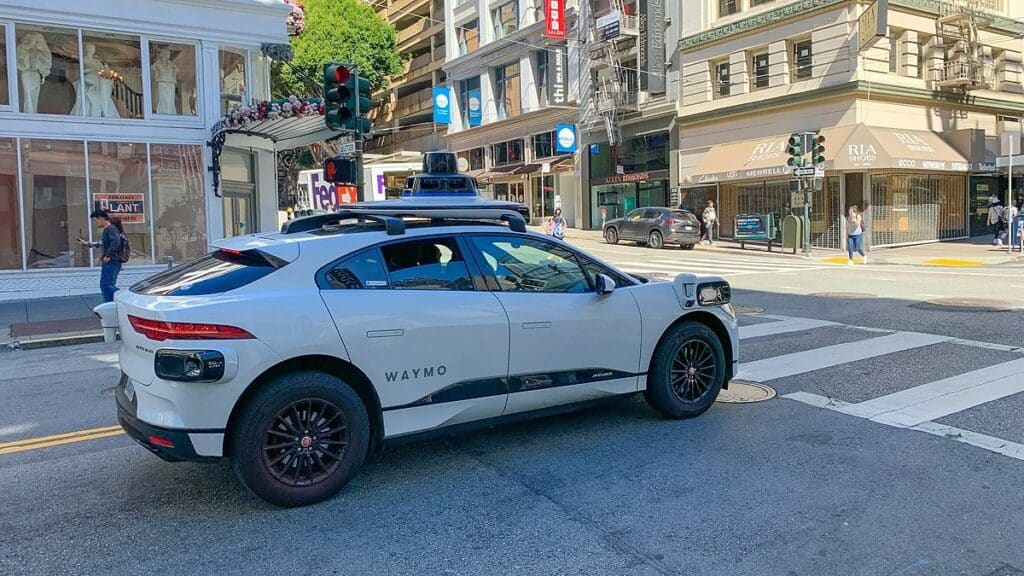
Autonomous cars navigating Manhattan traffic might sound impossible, but Waymo just secured NYC’s first-ever permit to make it reality. The Alphabet subsidiary can now deploy eight Jaguar I-Pace SUVs across Manhattan and Downtown Brooklyn—territories where even seasoned taxi drivers break into cold sweats.
The Ultimate Stress Test Begins
Waymo’s vehicles must navigate NYC’s chaotic streets with human safety operators always at the wheel.
This isn’t your typical suburban AV deployment. NYC’s Department of Transportation approved testing through late September 2025, but under exceptionally strict safety protocols. Each vehicle requires a trained safety operator behind the wheel with at least one hand on the steering wheel at all times. No passengers allowed—this is pure research, not your next Uber ride.
Think of it as autonomous vehicle boot camp. While Waymo operates robotaxis in Phoenix, San Francisco, Los Angeles, and Austin, none match NYC’s density and unpredictability. Double-parked delivery trucks, jaywalkers treating red lights as suggestions, and bike messengers threading between cars like they’re in a video game—this is where self-driving technology either proves itself or reveals its limits.
Safety First, Innovation Second
Mayor Adams’s new AV framework prioritizes caution over Silicon Valley’s traditional approach.
The permit represents the first approval under Mayor Eric Adams’s 2024 AV safety framework—a deliberate departure from tech industry norms. Waymo must coordinate regularly with first responders and provide operational data to city authorities. The company has already been working with organizations like Mothers Against Drunk Driving since applying in June.
“New York City is proud to welcome Waymo to test this new technology,” Adams said, “but testing is only the first step in moving our city further into the 21st century. As we continue to implement responsible innovation, we will always prioritize street safety.”
The Stakes Couldn’t Be Higher
Success in NYC would validate autonomous vehicles for dense urban environments nationwide.
Waymo’s 10 million robotaxi trips across other cities provide valuable experience, but NYC presents exponentially greater challenges. Success here doesn’t just advance one company—it establishes whether autonomous vehicles can handle America’s most challenging urban environments. Philadelphia, Washington D.C., and Miami represent Waymo’s next expansion targets as the company seeks national AV leadership.
If these eight test vehicles can navigate construction zones, aggressive drivers, and pedestrians who treat crosswalks more like suggestions than rules, the results could reshape urban transportation across major American cities. The data collected will inform not just Waymo’s technology, but the entire industry’s understanding of AV viability in dense metropolitan areas.
Last modified: August 22, 2025







